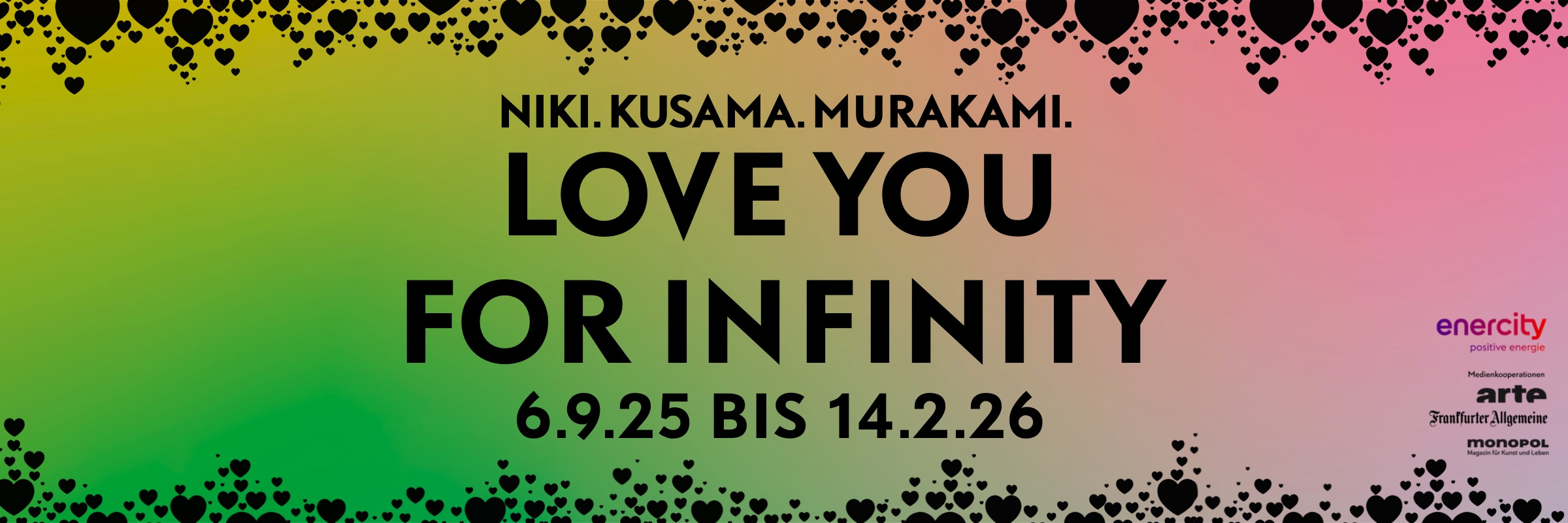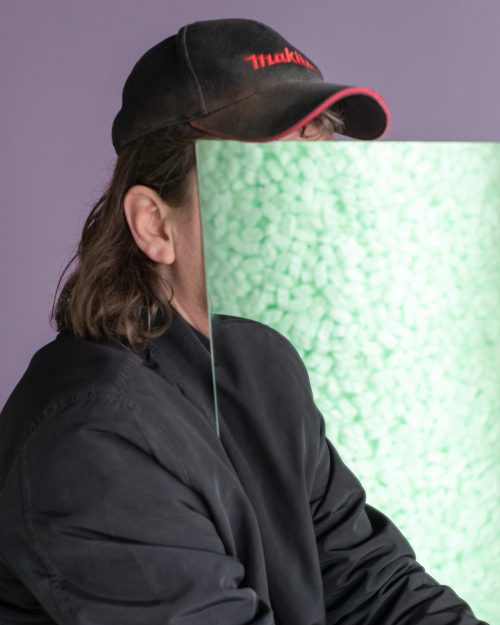
Océane Bruel and Dylan Ray Arnold
Water under the fridge
Project Info
- 💙 In Extenso
- 💚 Katia Porro
- 🖤 Océane Bruel and Dylan Ray Arnold
- 💜 Katia Porro
- 💛 Bruno Silva and Dylan Ray Arnold
Share on
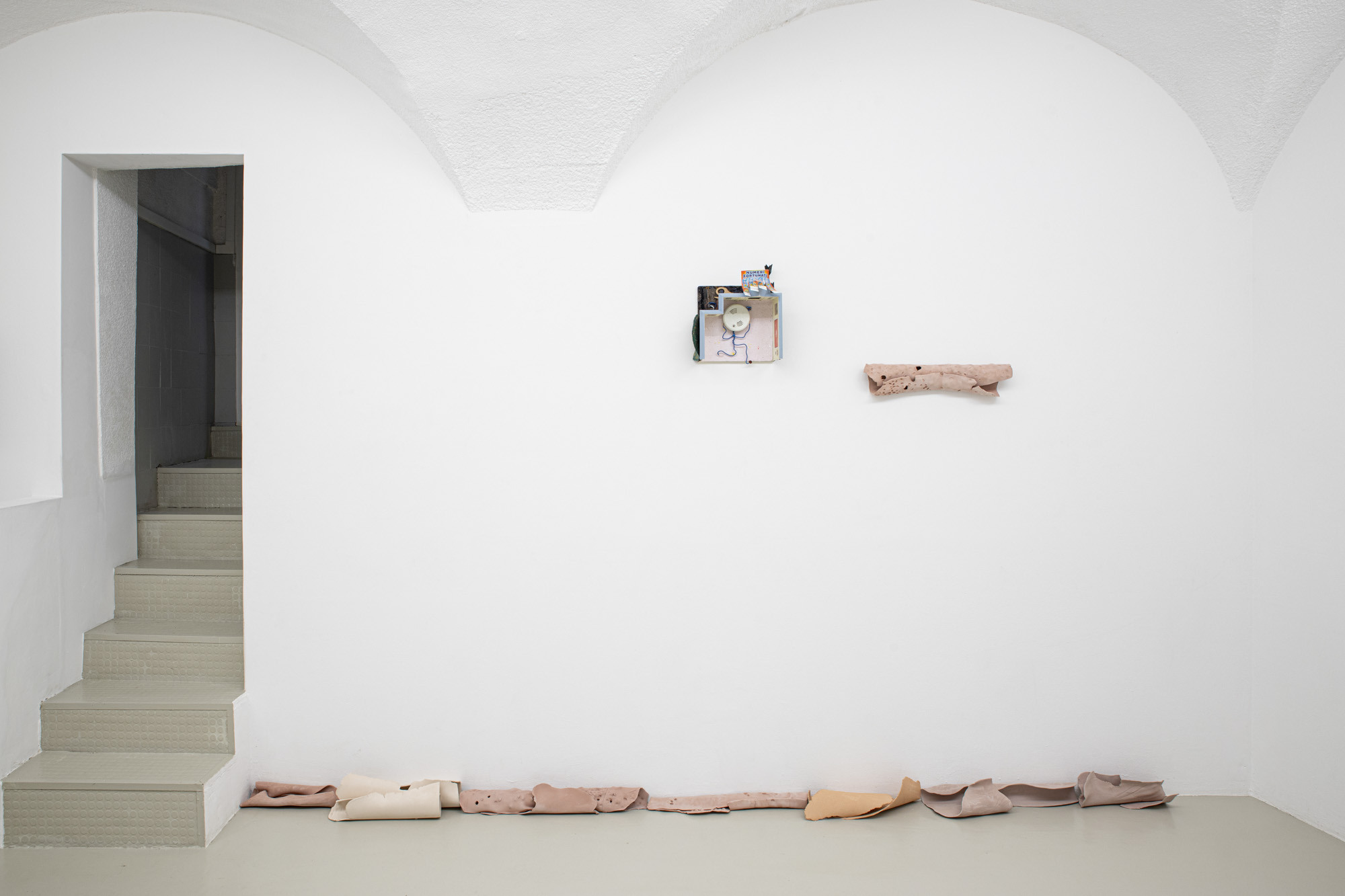
Exhibition view, Océane Bruel et dylan ray arnold, , “Water under the fridge”, In extenso, Clermont-Ferrand, France, 2024. Photo: Bruno Silva
Advertisement
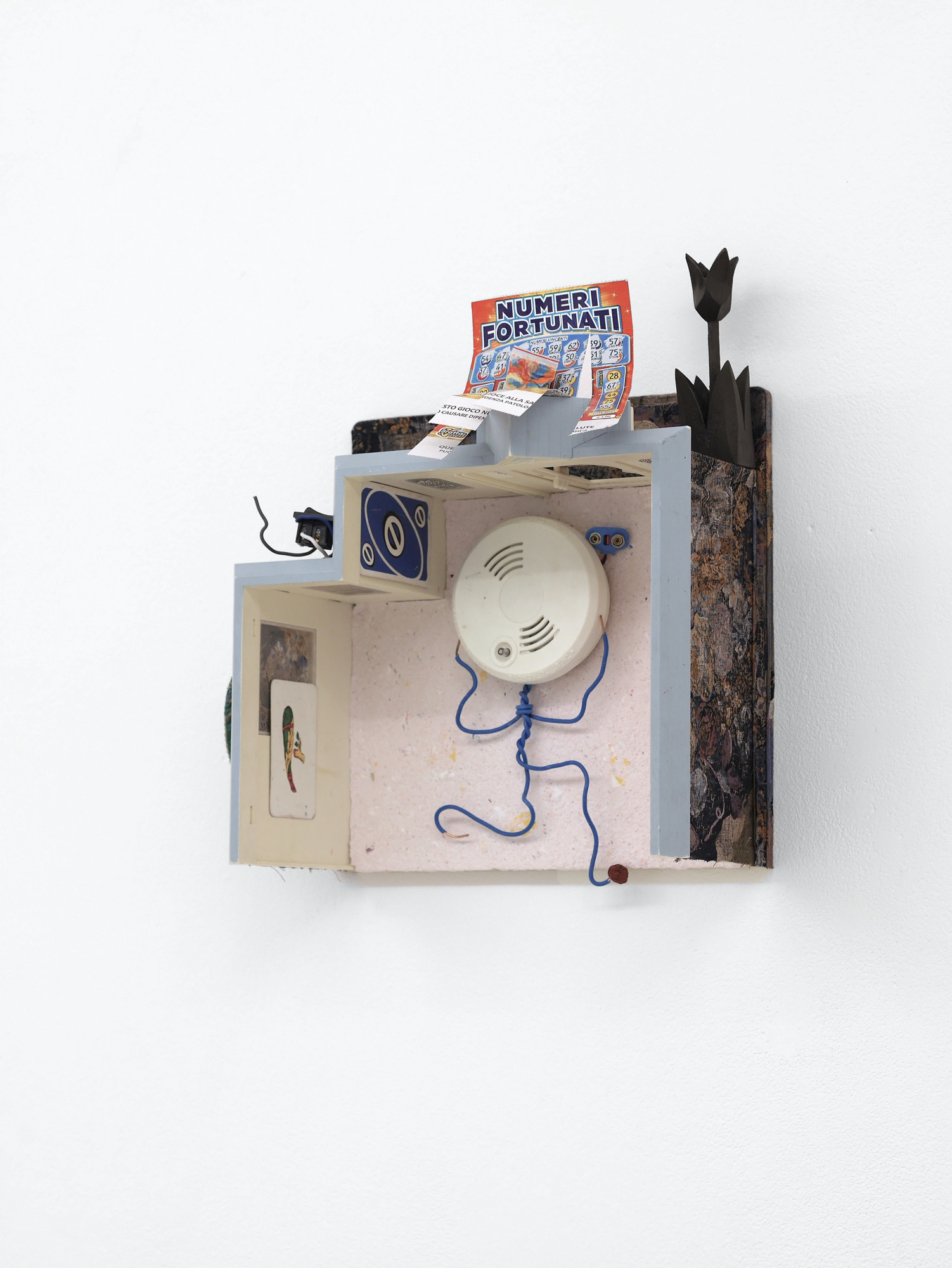
dylan ray arnold, Numeri Fortunati, smoke-detector, lottery-ticket, rowan berry, dollhouse, textile, playing cards, light switch, paper cut-outs, wooden flower, scratch card, shoulder-pad, balt-cutter, stone, modeling wax, 2024. Photo: dylan ray arnold
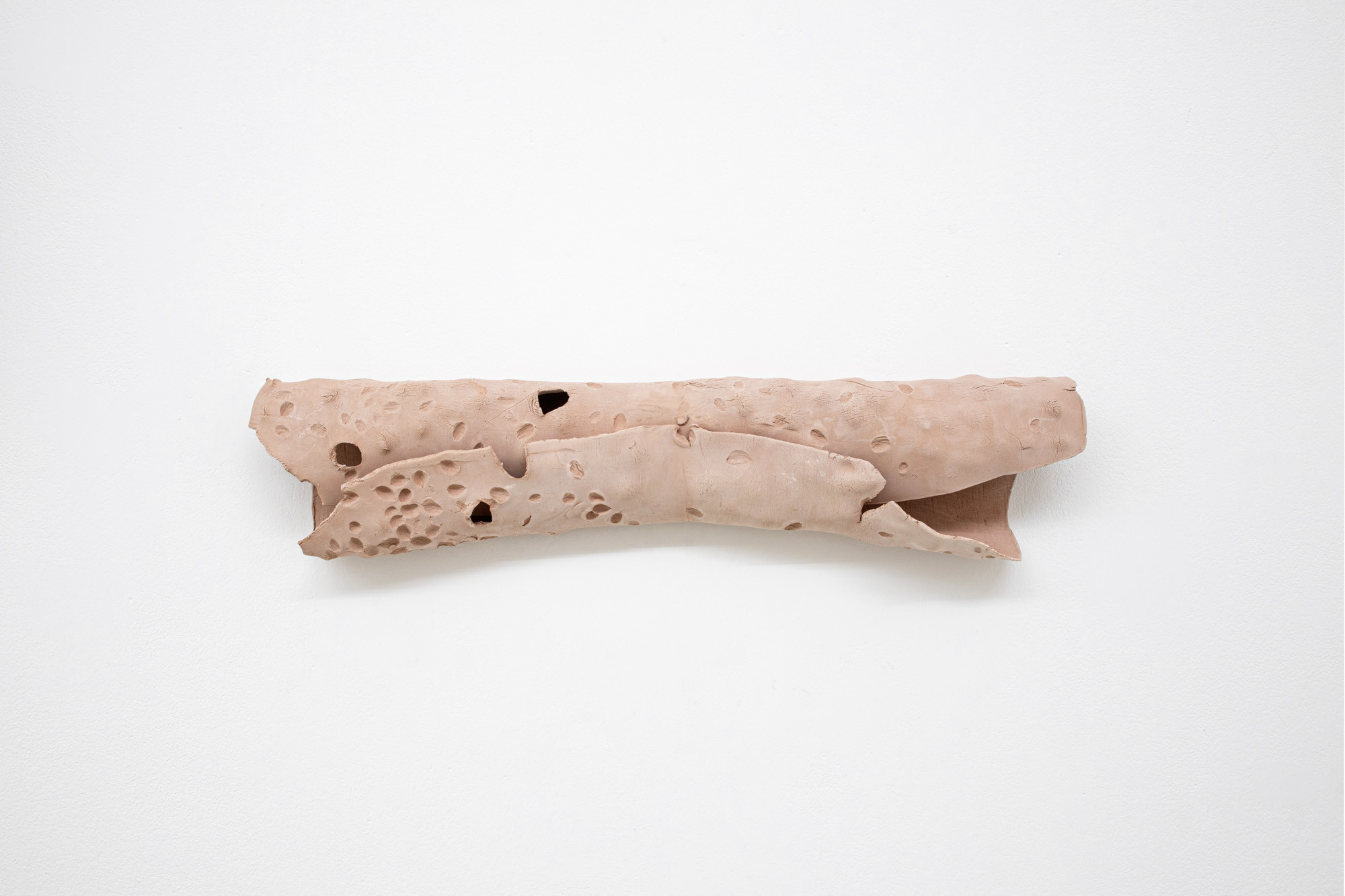
Océane Bruel, Feelings of others, stoneware, 2024. Photo: Bruno Silva
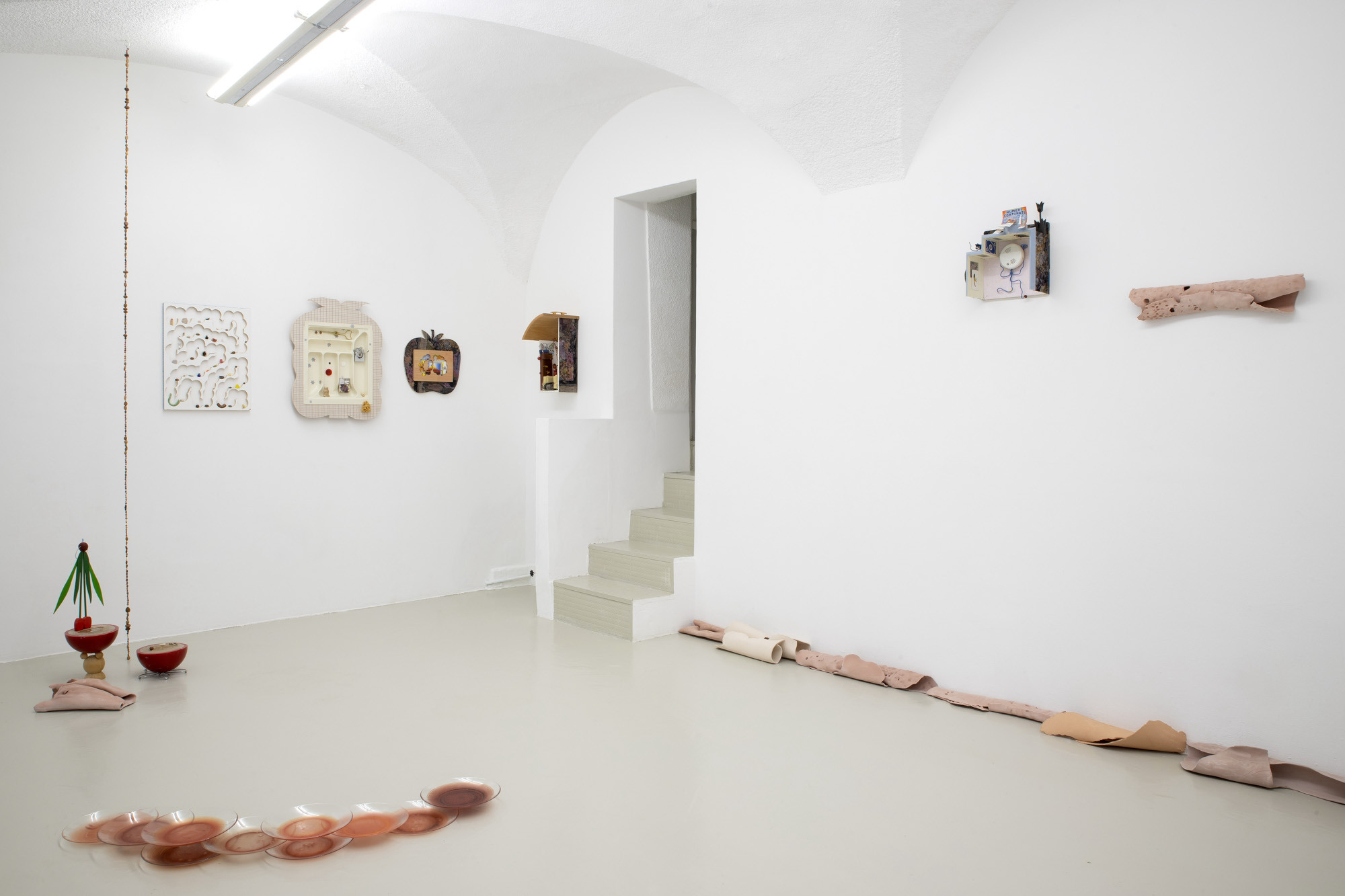
Exhibition view, Océane Bruel et dylan ray arnold, , “Water under the fridge”, In extenso, Clermont-Ferrand, France, 2024. Photo: Bruno Silva
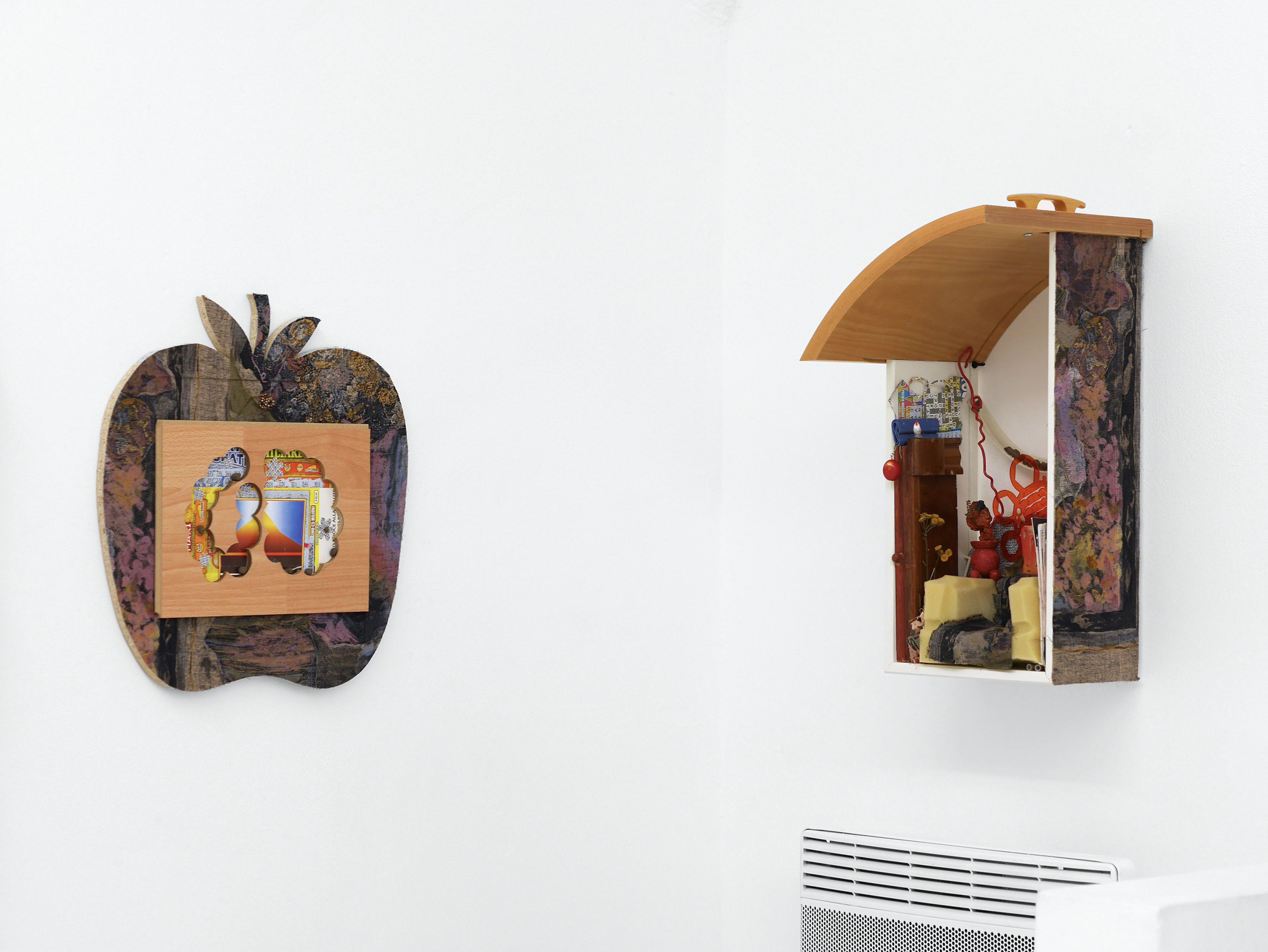
Exhibition view, Océane Bruel et dylan ray arnold, , “Water under the fridge”, In extenso, Clermont-Ferrand, France, 2024. Photo: dylan ray arnold
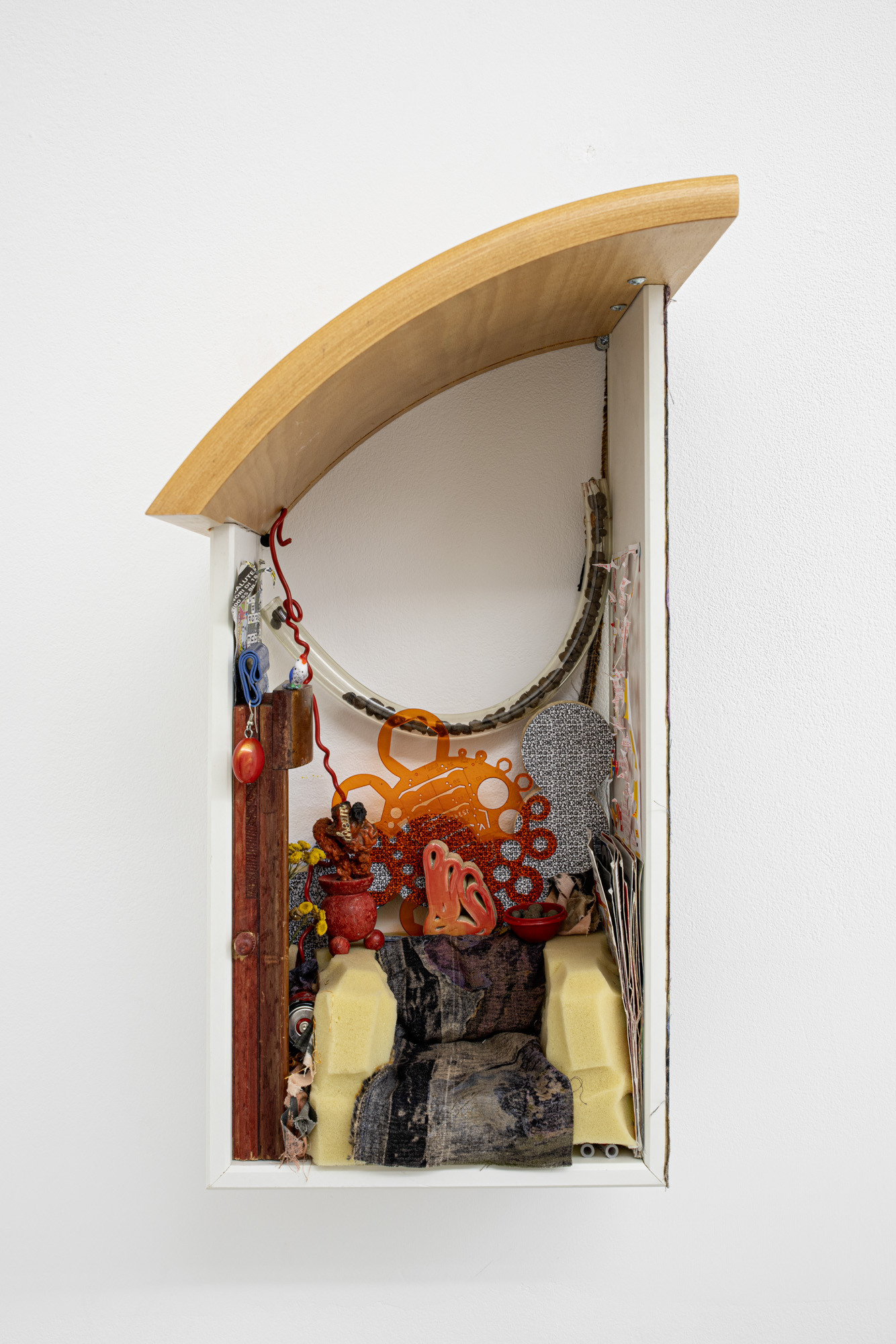
dylan ray arnold, A room with a view (on Cypress Hill), drawer, mattres foam, textile, lottery ticket, stoneware, plywood, scratch cards, pumice, candle holder, battery, ruler, spring, etc, 2023-2024. Photo: Bruno Silva
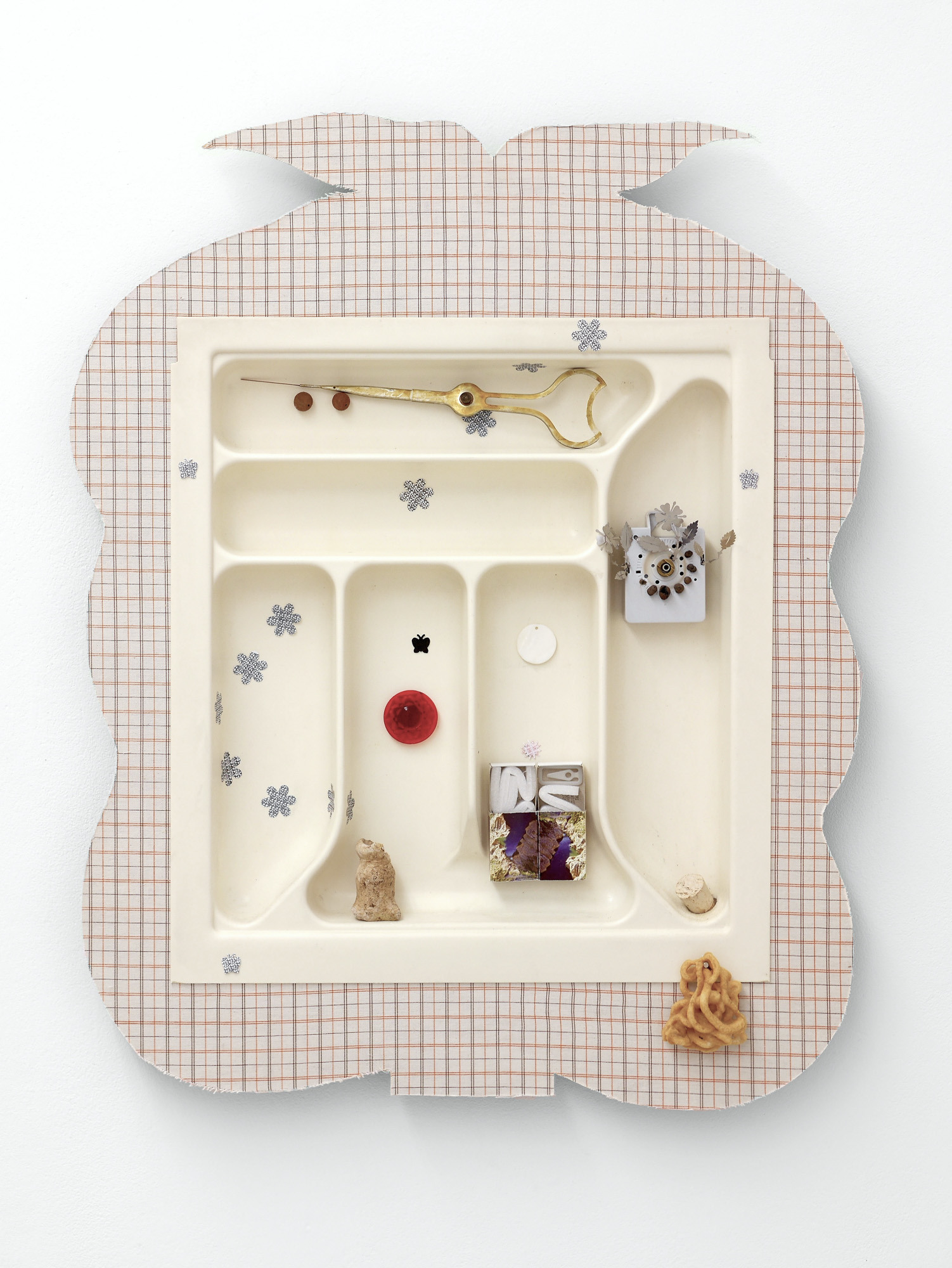
dylan ray arnold, belly of the beast, plywood, textile, cutlery tray, paper cut-outs, matchboxes, alarm clock, pumice, cursor, expanding foam, stone, etc, 2024. Photo: dylan ray arnold
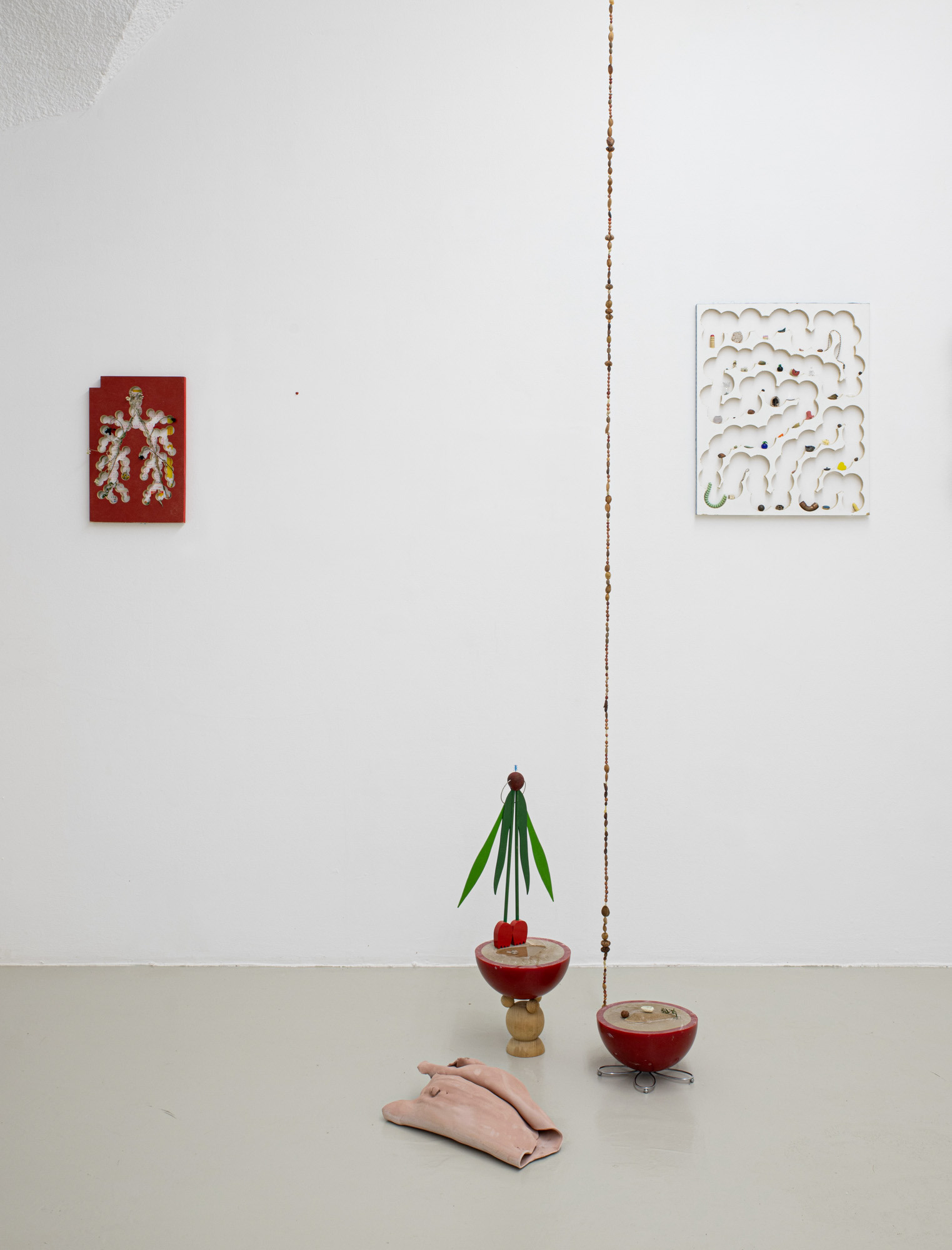
Exhibition view, Océane Bruel et dylan ray arnold, , “Water under the fridge”, In extenso, Clermont-Ferrand, France, 2024. Photo: Bruno Silva
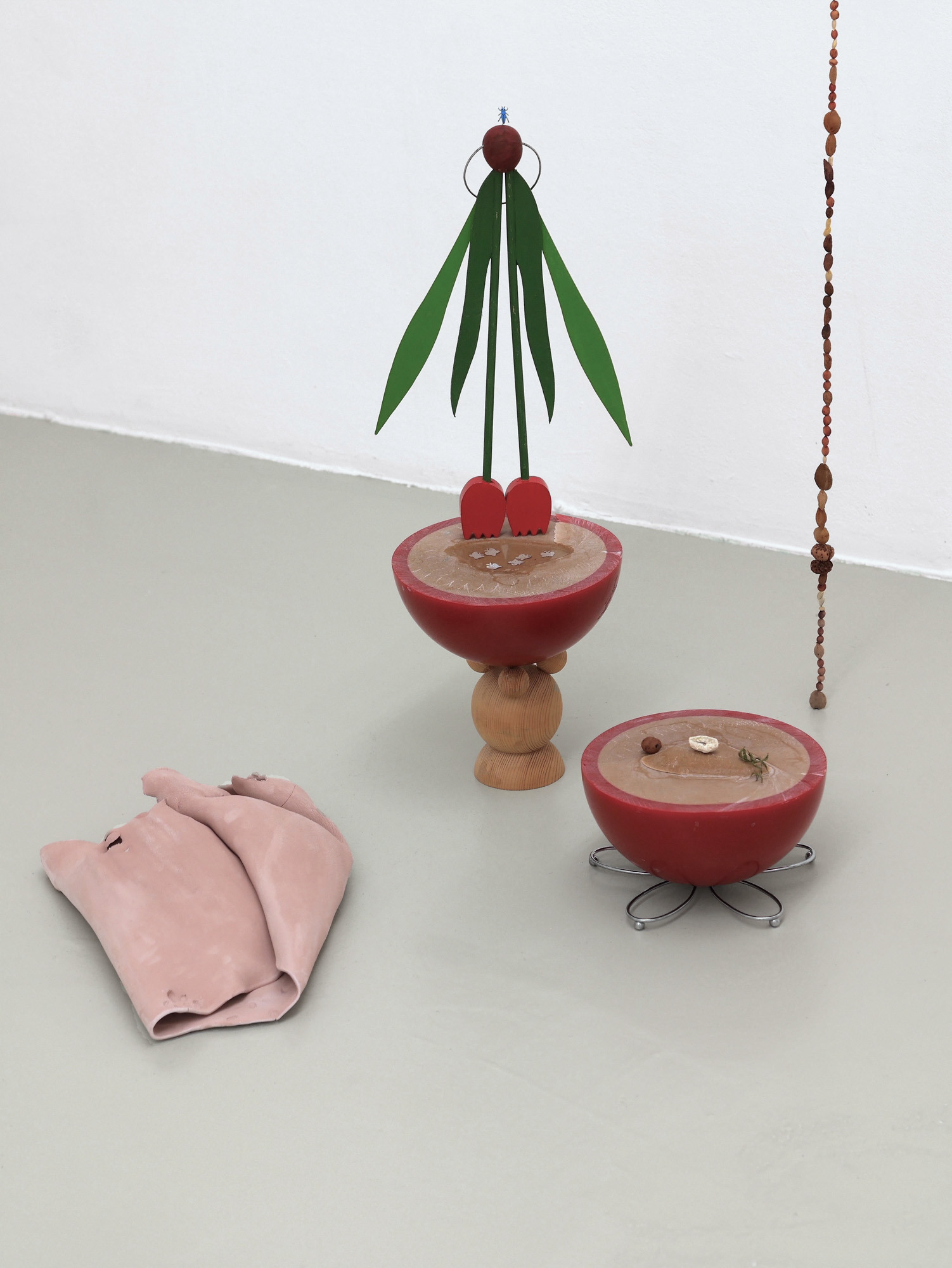
Exhibition view, Océane Bruel et dylan ray arnold, , “Water under the fridge”, In extenso, Clermont-Ferrand, France, 2024. Photo: dylan ray arnold
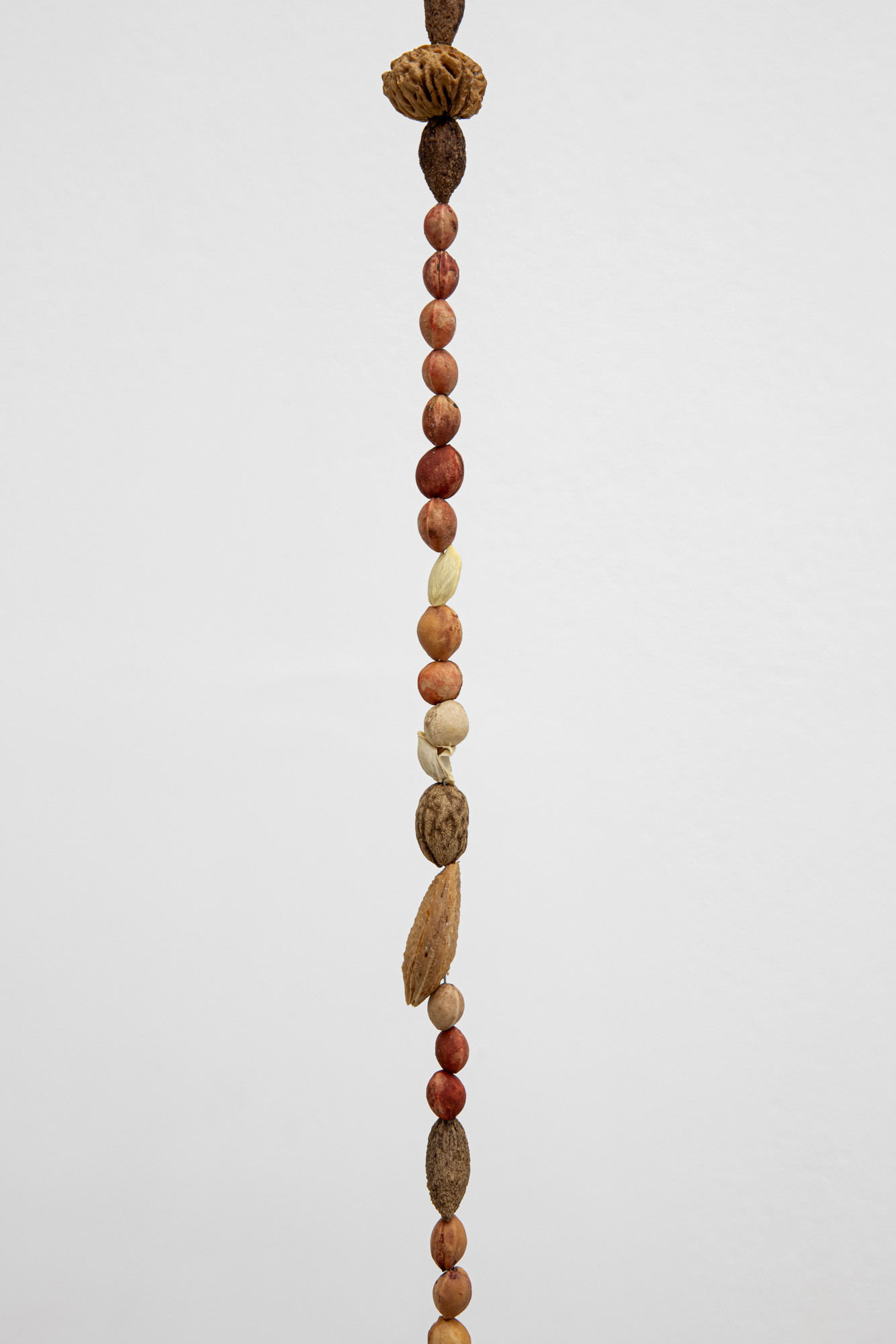
Océane Bruel, All the Mouths, pits of cherries, olives, plums, peaches, apricots, lemon, metal thread, 2024. Photo: Bruno Silva
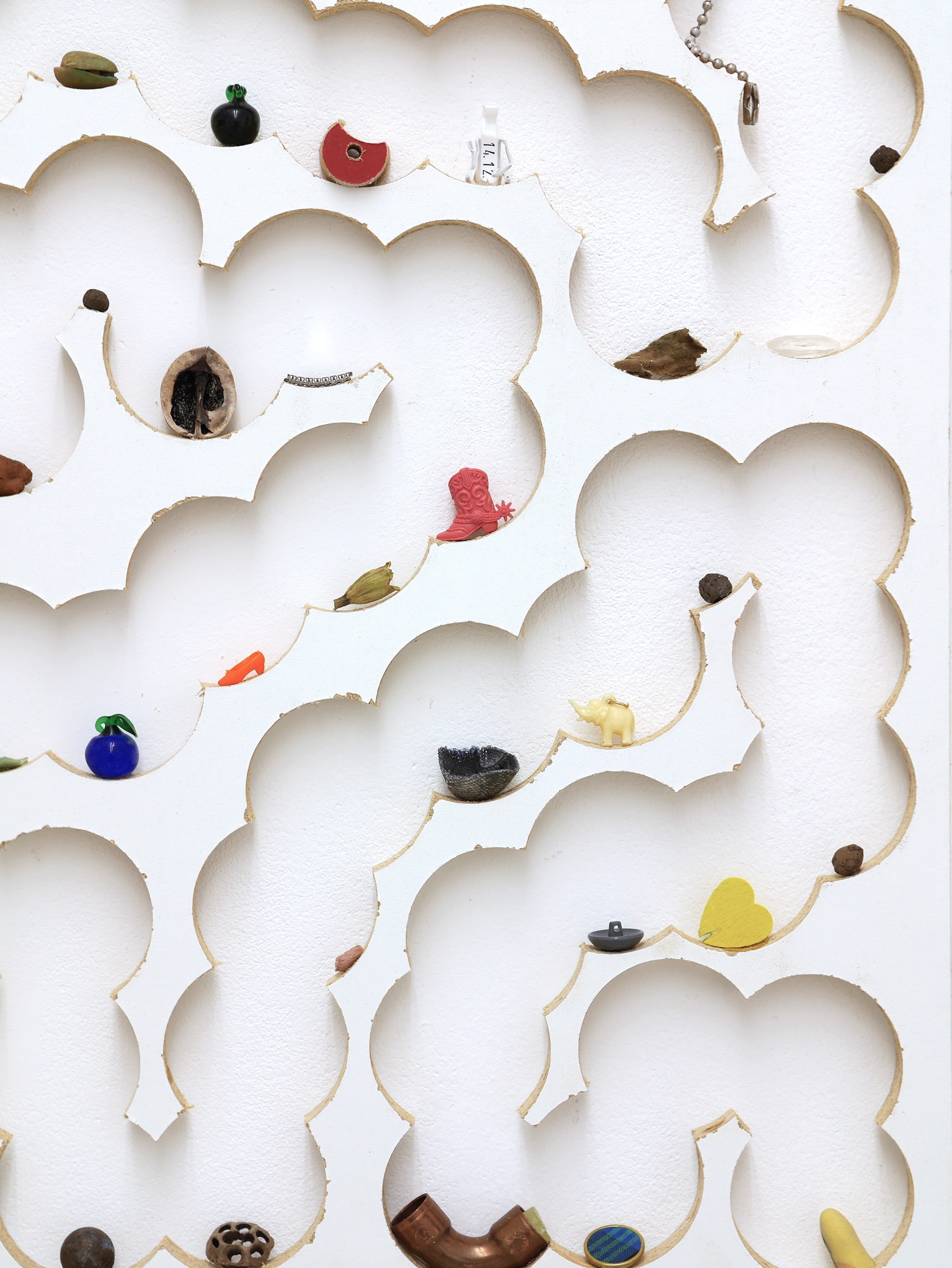
dylan ray arnold, Il était une fois…la vie, coated furniture board, small things,2023-2024. Photo: dylan ray arnold
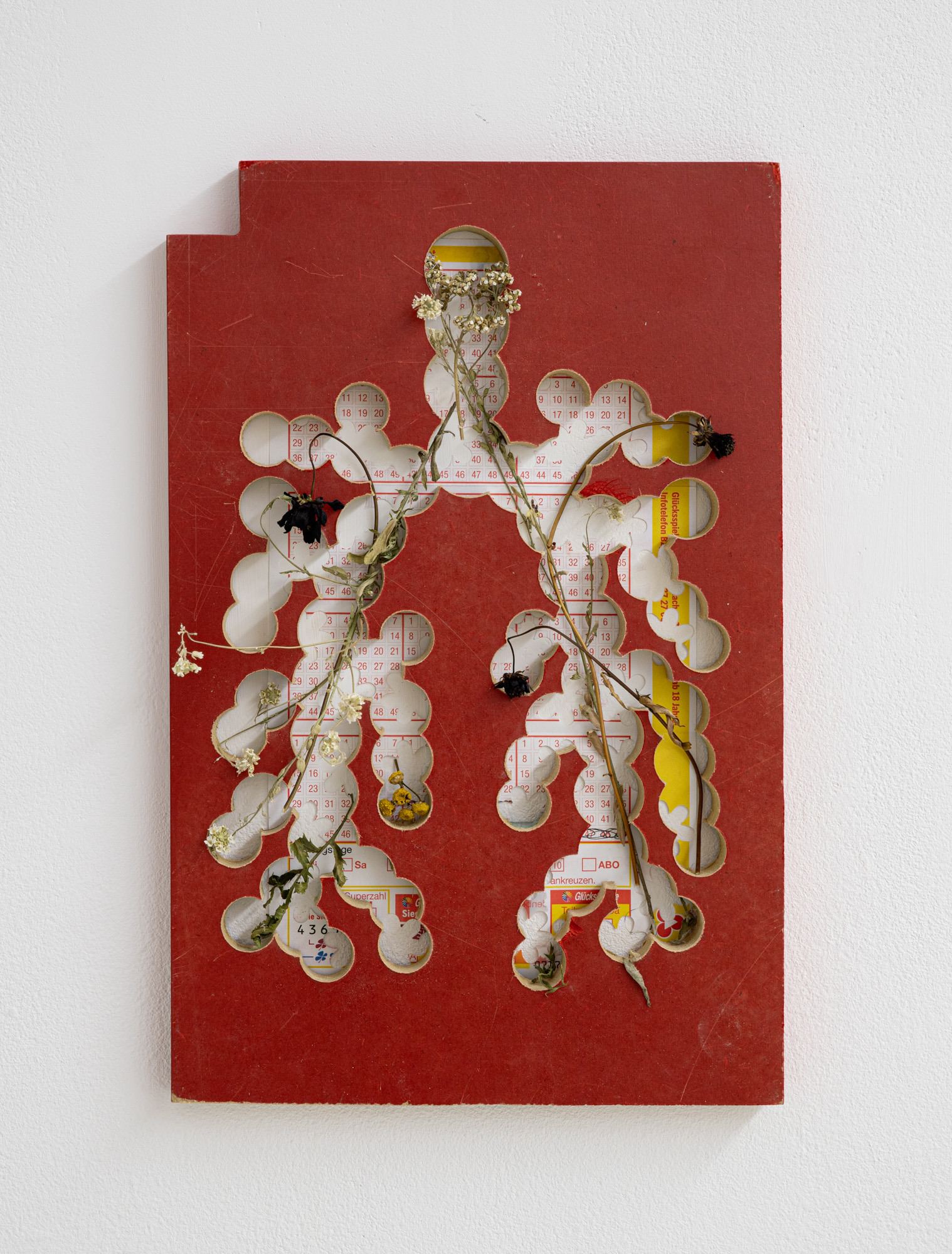
dylan ray arnold, Untitled, painted MDF, flowers from july, a mint, lottery ticket, 2024. Photo: Bruno Silva
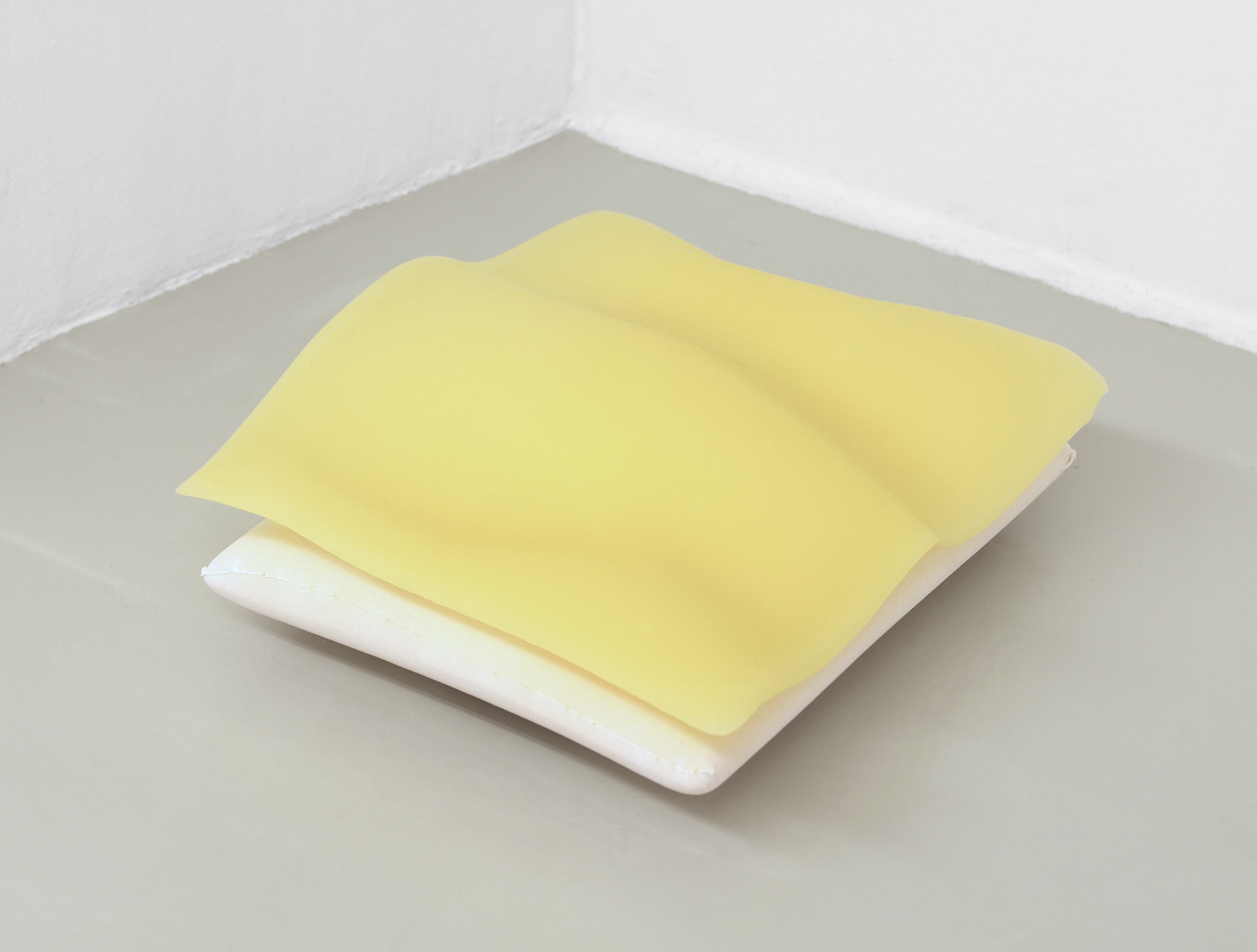
Océane Bruel, As I things need to sink, memory foam pillow, melted candles (paraffin), 2024. Photo: dylan ray arnold
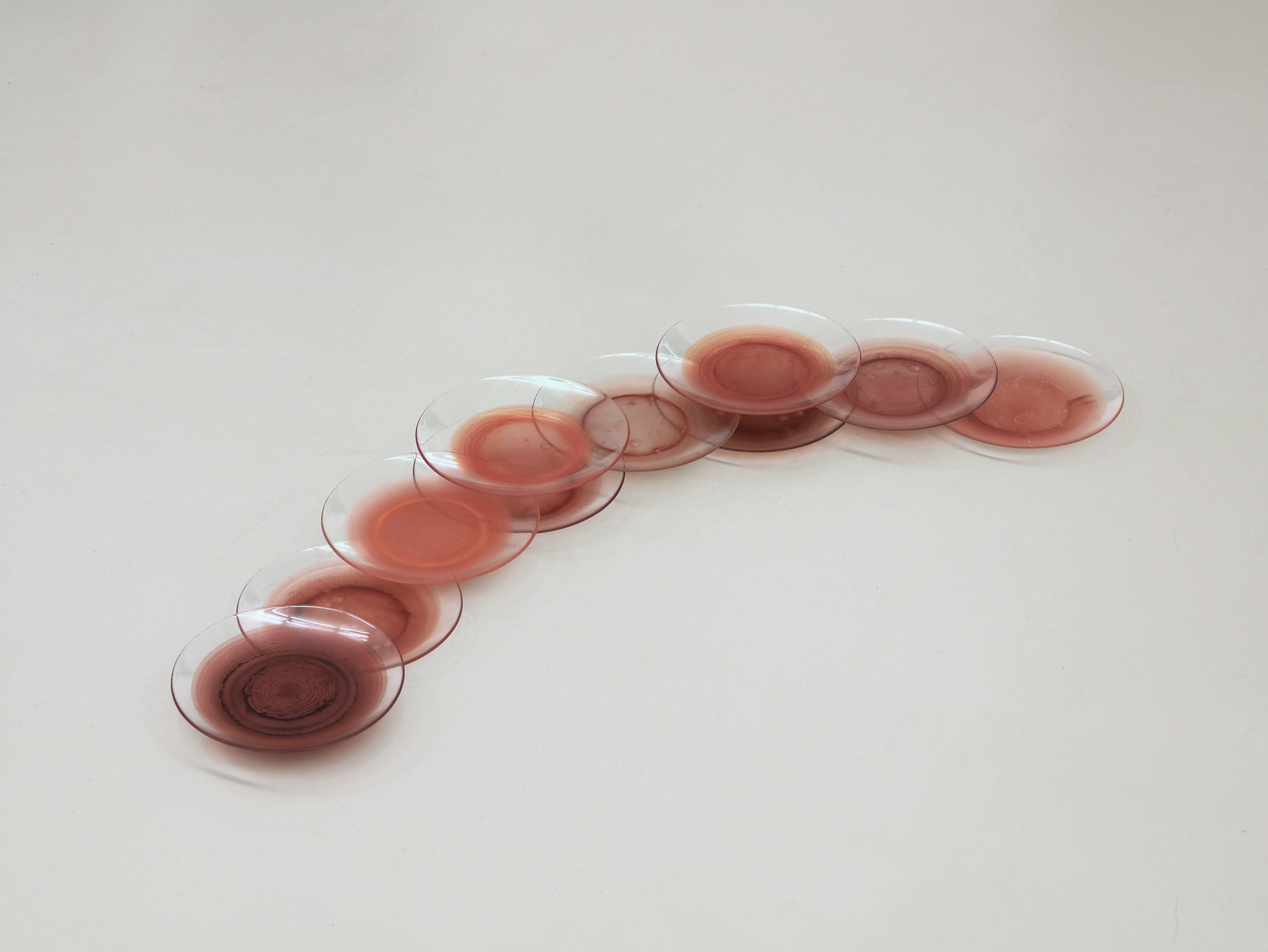
Océane Bruel, Solaris, even if I haven’t seen it, glass, watercolors, 2024. Photo: dylan ray arnold
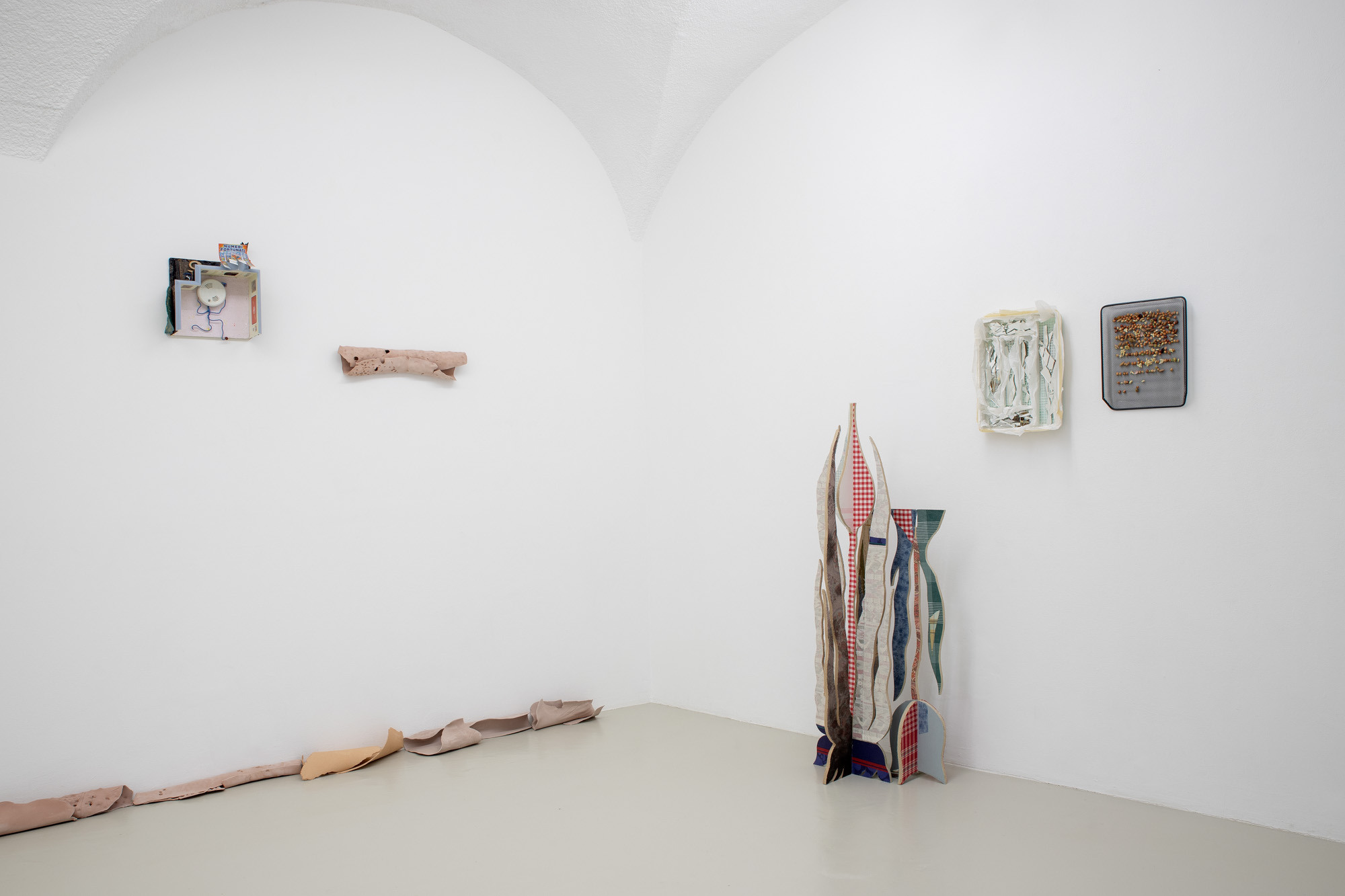
Exhibition view, Océane Bruel et dylan ray arnold, , “Water under the fridge”, In extenso, Clermont-Ferrand, France, 2024. Photo: Bruno Silva
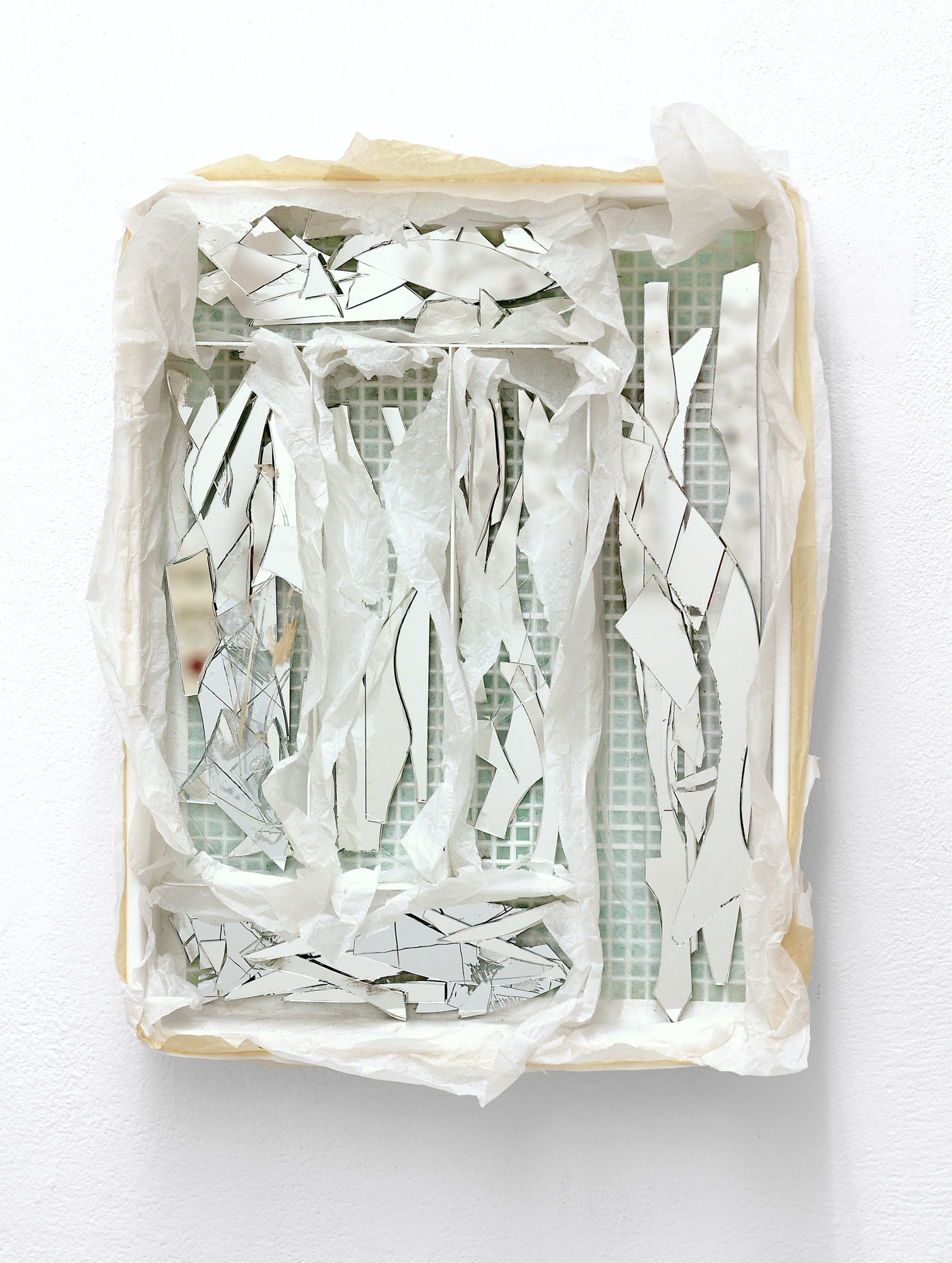
Océane Bruel, I like paper-cut, cutlery tray, silk paper, mirroir pieces, 2024. Photo: Bruno Silva
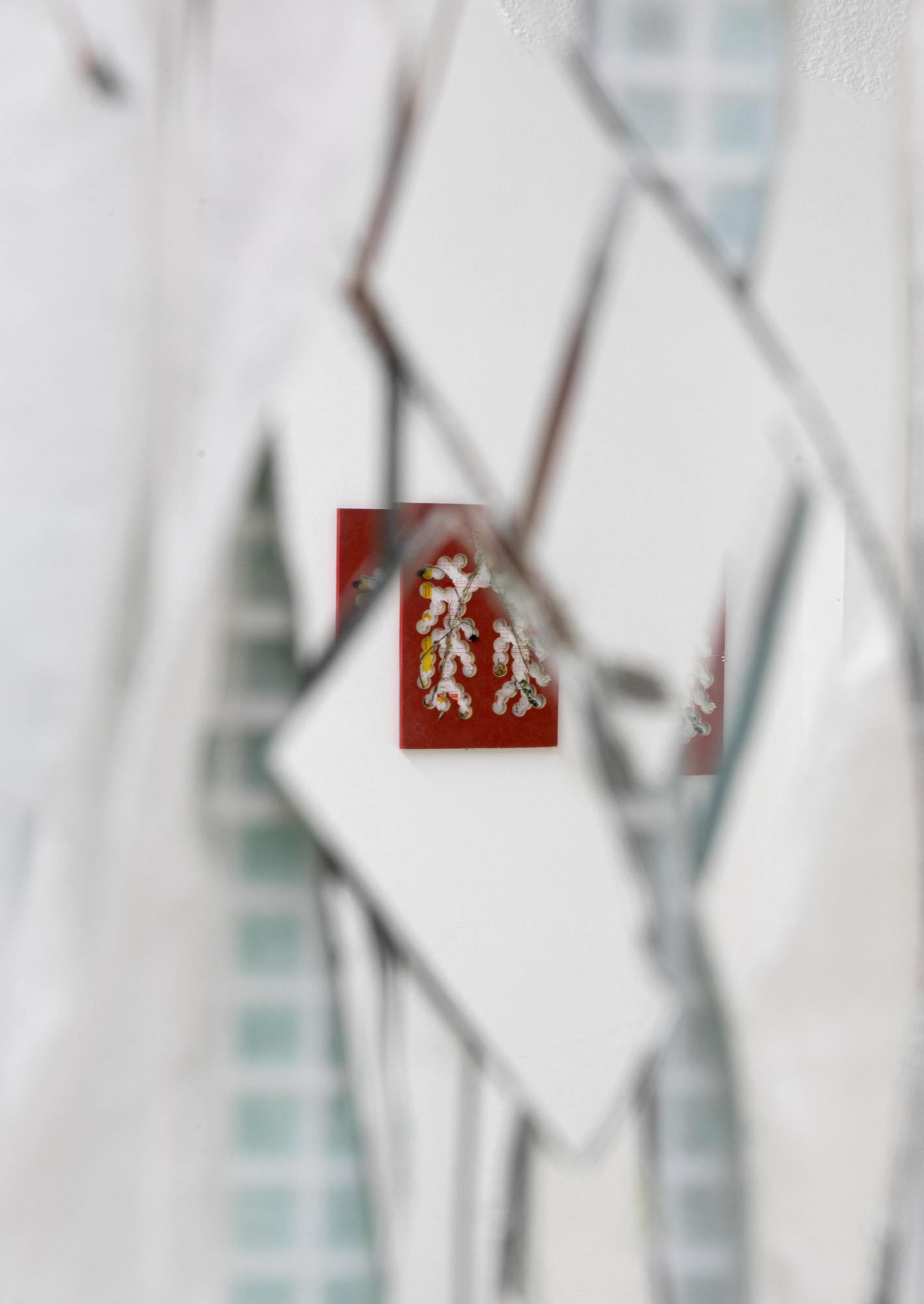
Océane Bruel, I like paper-cut, cutlery tray, silk paper, mirroir pieces, 2024. Photo: Bruno Silva
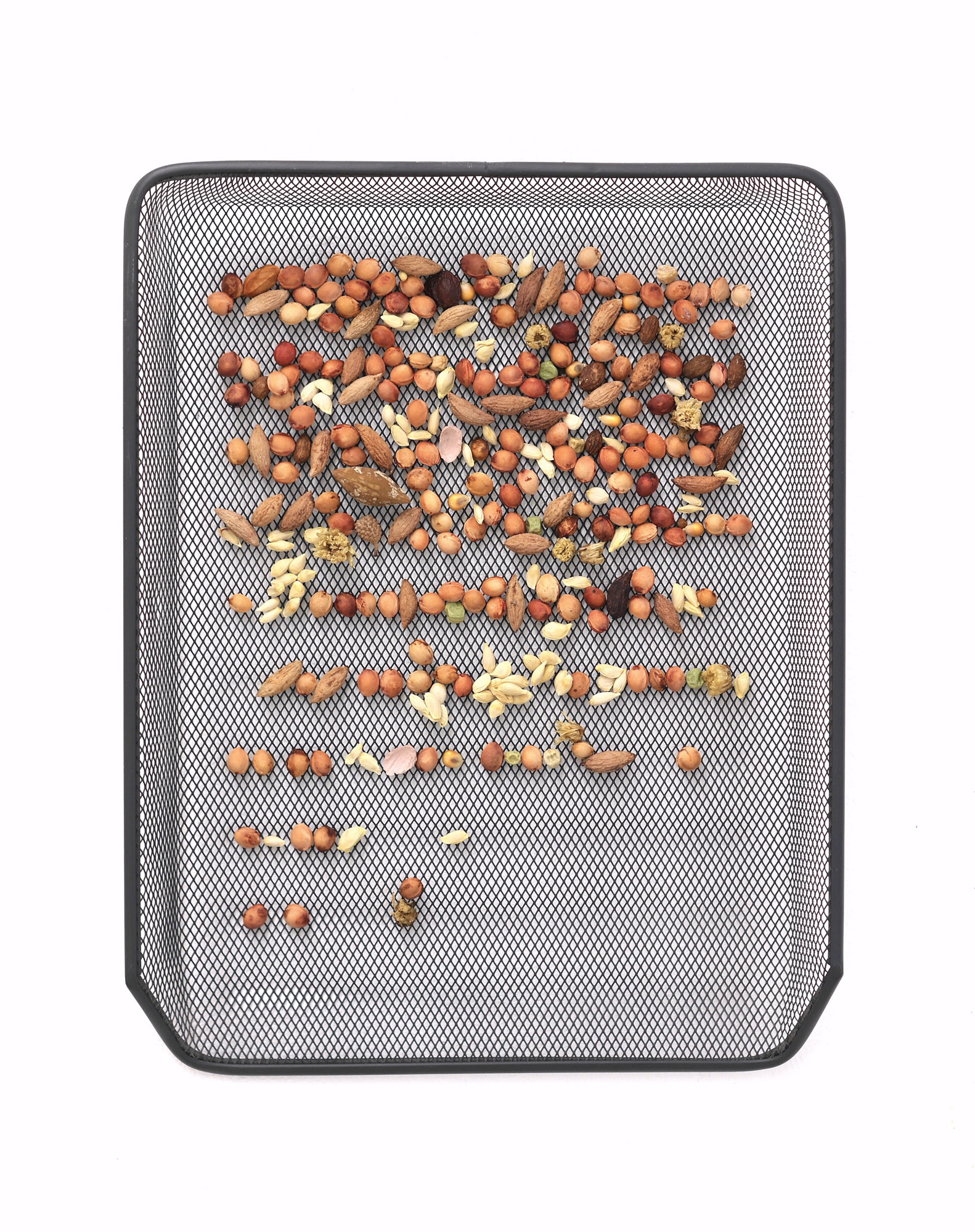
Océane Bruel, No Hello, No Goodbye, steel paper tray, cherry pits, olive pits, lemon seeds, chrysanthemum, stoneware, 2024. Photo: dyaln ray arnold
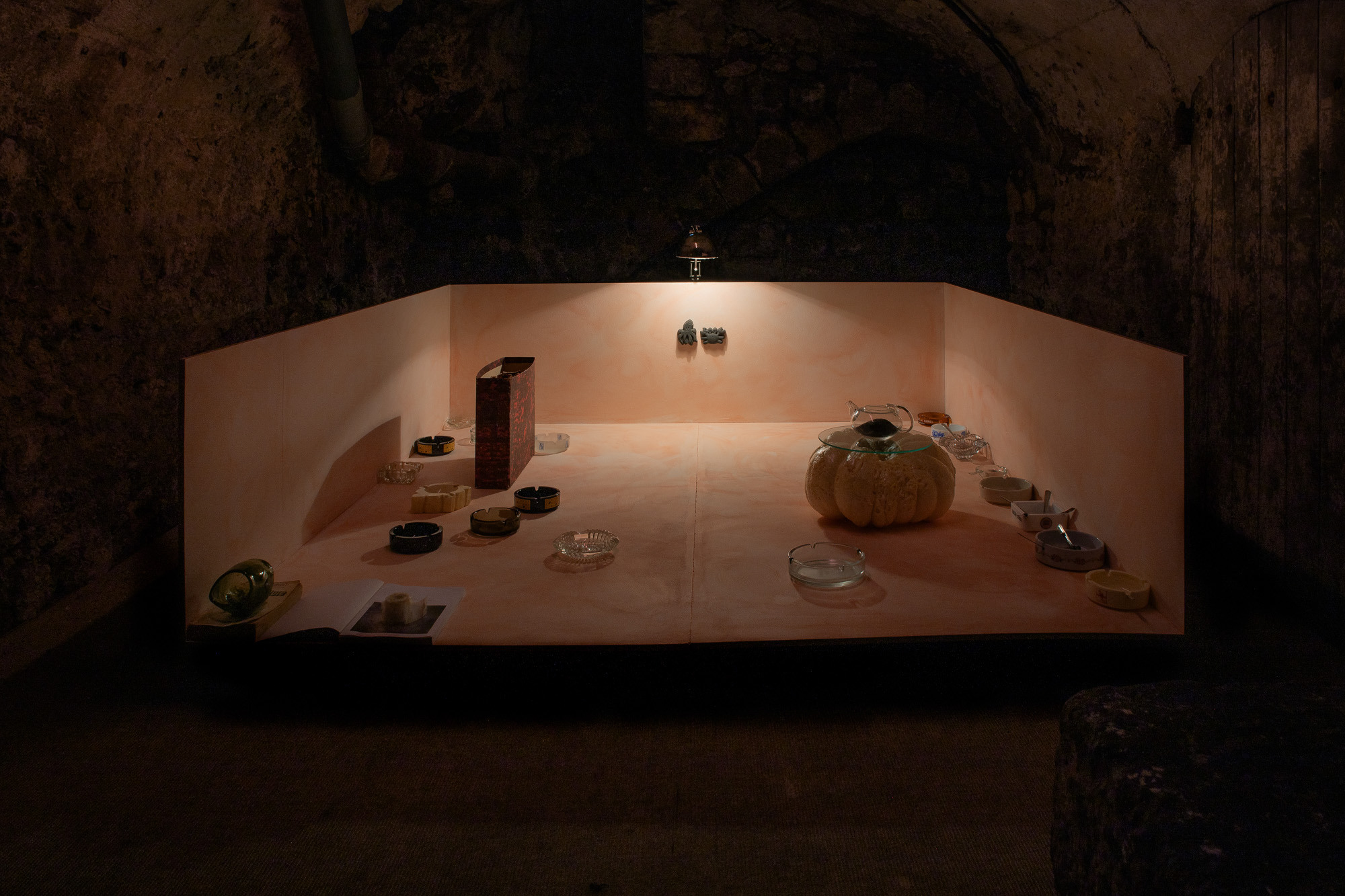
Touristes Tristes, Crab and Squid Drama Compagny, 2024. Photo: Bruno Silva
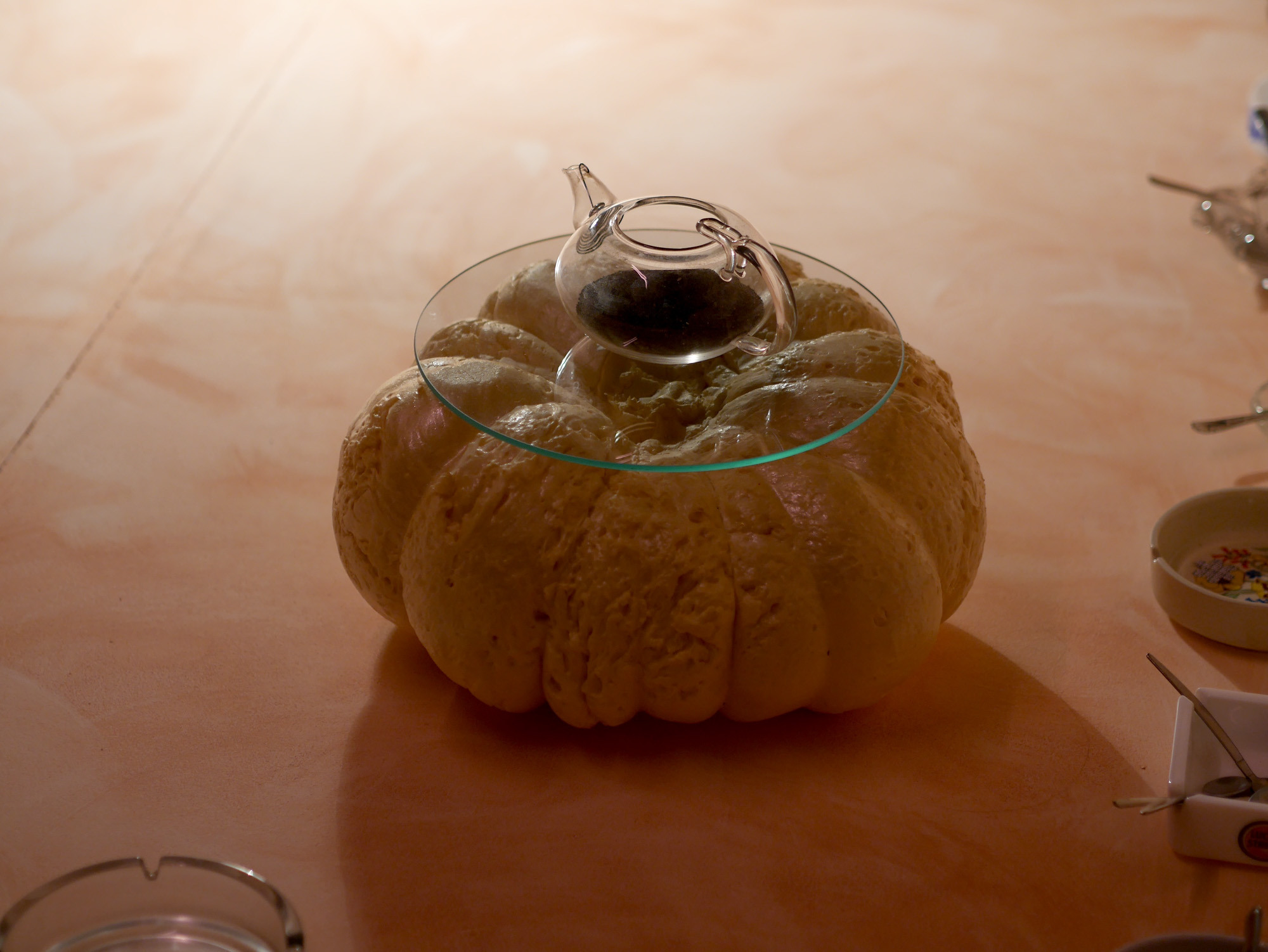
Touristes Tristes, Crab and Squid Drama Compagny, 2024. Photo: dylan ray arnold
Dear zero,
It’s me again. I’d like to think that part of you is here, melted down and resting on the pillow that your candle cousins once laid upon. Océane has a way of doing that – transforming, metabolising, translating elements like you into other forms, allowing them to slip into other entities. dylan does too. Perhaps “elements” isn’t the right word.
“From the infinite number of phenomena occurring around me, I isolate one. I see, for example, an ashtray on the table (the rest fades into the background) […]
– No, no (you object), it’s an ordinary ashtray.
– Ordinary? So why are you defending it, if it really is ordinary?
And this is how a phenomenon becomes an obsession […] There is something in consciousness that makes it a trap for itself.”
Perhaps “phenomena” would be more accurate. We spoke of this text, Océane, dylan and I, in a studio in Paris in 2019. That conversation has unfolded over the last five years and dispersed itself in our various collaborations. You, dear zero, have been there from the get go.
So in the infinite number of phenomena that exist around us, there is one that has lent itself to our title. A title which, if you were to change a single letter in the sentence, would become the English idiom for ‘it’s all in the past’. A tiny letter that nonetheless carries the weight of meaning. Water under the fridge – a trivial, banal situation; the result of something annoying (a leak) or a lazy gesture (leaving a fallen ice cube on the floor). It is precisely these trivial situations, gestures and objects that Océane and dylan look to, digesting, metabolising and translating them through their poetic material approaches.
Océane and dylan both have their own individual practices, alongside which they have also been developing a collaborative practice together since 2014, working under the name Touristes Tristes and creating a dialect and identity distinct from its two differing origins – yet curiously similar. It is a dialect shaped by their movements, their gestures that shift meanings, their ode to metamorphoses. They are also companion lovers, allowing for a fluidity, a sharing of the quotidian, of space, of rhythms, of states of being and desires. However here, dear zero, the dialect that fills the space is not the one they have created together. It is rather an unprecedented dialogue between their two distinct languages that share a root in…in what?
In as much of a story of obsessions for ordinary phenomena as in is a story of sensitivity and attentiveness (to others, to things). In June of this year, I went to Helsinki, where the artists live, and experienced my first summer without nighttime. Whilst shopping at Prisma in daylight at midnight, a line of towels stuffed under a fridge – a temporary solution for a slippery situation – glanced at us. Or rather, they ignored us. Water under the fridge, murmured in passing by dylan later in the studio, found itself scribbled in my notebook before being printed on our press release in the guise of a title. As for the essence of the situation, it has become entangled in the row of Océane’s ceramics lining the crevice between the wall and the floor. Situations move through time, through bodies, through materials in the same way that barely discernible scents do. That is something I’ve learned from their work.
Samuel Beckett spoke of time through the image of liquid being poured back and forth from vessels. Anne Carson spoke of life as a pouring in and out – like tides (what does it mean to be tidal?). There is a beach composed of tide pools that exists now only in photos from my childhood, tide pools that squids and crabs once inhabited. I understand Océane and dylan’s practices through tides, through these creatures. The formlessness of the squid and the machinic assembling of the crab (or, a lobster, if we were to look to Deleuze and Guattari) seem to be negotiating in each of their works: a red puddle is stacked, intestines contained. In their practices, shapeshifting happens in a tidal motion, a coming and going, an expanding and contracting.
Together, we listened to Anne Carson speak not only of tides, but also of composite things. We spoke of her way of being exact, exacting, with words in a simplicity that dizzies the mind. “The fruit bowl paused,” she wrote in another text that has carried our conversations. With Carson, the inanimate vibrates. With Océane and dylan, it does the same. They, too, each have a way of being exact in their forms, even in forms that are figures figuring themselves out. There is a rawness to the clear compulsion, obsession that is embedded in the materials and gestures both artists activate. Flaws are assumed, vulnerability too.
In obsession, compulsion and vulnerability, rumination is central. Ronger, ranger. Ronger, ranger. Another trivial letter that carries meaning. Ronger – the French word meaning to eat away at something, used to describe the obsessional, overwhelming sensation of being stuck in an internal loop. Ranger – the French word meaning to arrange, to tidy. Chewing appears in each of their practices in a physical and symbolic manner – the fruit pits gnawed on to relieve physical pain in Océane’s case ; the hungry caterpillar cut-outs as a metaphor for psychological rumination in dylan’s case. It is all part of a metabolic process that leads to a compulsive way of assembling and arranging, of pushing through the stickiness, of stretching the internal loop, dispersing chaos in utensil drawers. To move through it.
The looping redundancy, absurdity and nevertheless importance of systems – think nervous, digestive, respiratory and immune – becomes a series of stutters, pauses and trembles here. It holds the weight of something volcanic. The gravity of something going up in smoke, the dormancy of a volcano before its eruption, this breathing, living, temperamental and unpredictable cavity – and its inevitable drama.
Like you and your loop, dear zéro, through which the only escape is combustion.
Katia Porro
1 Witold Gombrowicz, Cosmos, Éditions Denoël, coll. Folio, 1966. Translated from the French.
2 This is a slightly transformed extract from a text I wrote “Chewing, folding, articulating: on Océane Bruel and dylan ray arnold’s material languages” published in Residences Reflected, ed. Irmeli Kokko, Mousse Publishing, 2024, p.105-115.
3 Samuel Beckett, Proust and Three Dialogues. London: Calder Publications Ltd., 1989.
4 Anne Carson, “1=1”, The New Yorker, 3 January 2016.
5 Gilles Deleuze & Félix Guattari, “1000 B.C.: The Geology of Morals (Who Does Earth Think it is?)”, dans A Thousand Plateaus: capitalism and schizophrenia, University of Minnesota Press, Minneapolis, 1987, p.39-74.
6 Anne Carson, Autobiography of Red, John Cape, London, 1998
The artists benefited from a residency at Chalet Lecoq, an initiative of the City of Clermont-Ferrand, as well as support from Frame Foundation Finland.
The exhibition is part of the programme Résonance of the 17th biennale de Lyon – Contemporary Art.
Océane Bruel is supported by the Finnish Cultural Foundation.
dylan ray arnold receives support from the Kone Foundation.
Océane Bruel (b. 1991; Montpellier, FR) is a visual artist working with sculpture and installation. After studying at ENSBA Lyon, in France, she moved to Helsinki where she currently based. In recent years, she has presented her work in solo exhibitions in Finland and internationally e.g Pengerkatu 7 Työhuone, Helsinki (2022), La BF15, Lyon (2020), Muu Kaapeli, Helsinki (2019) AIR Sandnes, NO (2018) and in duo at Helsinki Art Museum Gallery, (2020), Gether Contemporary, DK (2020) and Glassbox, Paris (2019). Her work has also been presented in group exhibitions in Finland, Estonia, Nordic countries, Germany, France and Australia. Her works are in the collections of The Finnish National Gallery, Helsinki Art Museum and also in private collections.
dylan ray arnold is a visual artist from Helsinki who works with sculpture, installation, drawing, assemblage, printed matter and video. Their works have been exhibited in solo and duo show e.g. In Finland at Forum Box (2023), P7T art space (2022), HAM gallery (2020), Turku Art Hall (2020), Alkovi (2019), Titanik gallery (2022) and in Paris at artist-run spaces GlassBox (2019). Their work has been presented in group exhibitions in Finland and abroad e.g. at Tallinn Art Hall (2019), Pauline Perplexe (2022). Their works are in the private collections and also in public ones, The Finnish National Gallery, Helsinki Art Museum and Academy of Fine Arts, Helsinki.
In parallel to their respective practices, Océane Bruel and dylan ray arnold have been developing a duo practice under the name Touristes tristes since 2014.
Katia Porro
